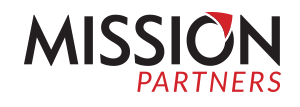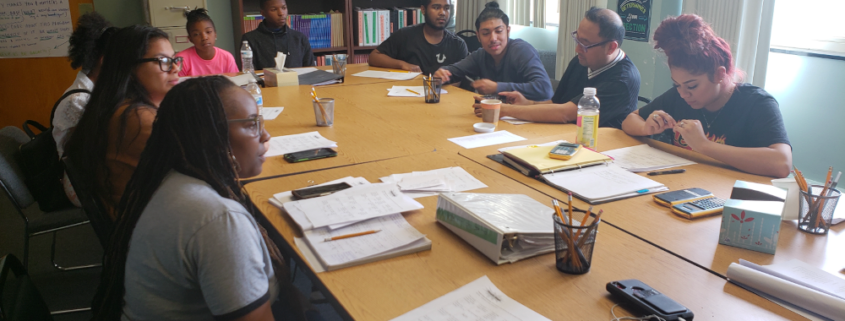Finding Humanity Behind Action: Racial Equity Interview with Carolyn Lowery
By: Jessica Hassanzadeh, Mission Partners Managing Director
Like many in our community and around the world, Mission Partners and Leadership Montgomery made the decision to postpone our annual Spring Convening, The Business Case for Race Equity. The rescheduled event will now take place on October 6th at AMP by Strathmore. To keep this important conversation going between now and October, Mission Partners will share a monthly racial equity blog featuring interviews with business leaders and community members embedded in this work.
Here’s the second blog in our series featuring an interview between our CEO Carrie Fox and Carolyn Lowery, racial equity consultant to Mission Partners.
Carrie Fox: Hi Carolyn. I’d like to use this blog to introduce you to our community. Could you start by sharing your journey and motivation for racial equity work?
Carolyn Lowery: That could be a very long answer! As an African American woman, race has always been part of my life. Starting school is really when I remember having to address issues of race, racism and equity. I would have to work harder or be well-mannered to not draw attention to myself — there were lessons I learned at a very young age. I learned there were haves and haves not and often that was based on race. That led me to stretch myself in terms of understanding culture more, being more empathetic, listening more.
In seventh grade my friend was diagnosed with Seasonal Affect Disorder. She was out of school but her family had access [to treatment] so she was able to leave and come back to her grade and be successful. I went to a different school in high school, with more people of color and a different socio-economic class. I saw a person who went through almost the same experience but didn’t have the same access to the same level of care. She was held back a grade, it affected her self-esteem, her social group and she dealt with many things I don’t think my friend in seventh grade had to experience. And so realizing that difference is what led me to thinking about this deeply.
CF: What has been your pathway into the work that you do?
CL: I have always been fairly involved in justice or fairness. Justice has always been a big part of my character. As I got older and as I was thinking about a career, I wanted to impact that as best I could. That has looked different over the years because I had to learn my skills and learn myself – where my strengths were. That journey itself was its own equity journey.
Having different levels of mentorship — or not — or opportunity — or not — or being put in jobs where my skills were not the strongest, I think a lot of it had to do with race and gender. It didn’t help speed the process for me to get where I want to be professionally and I have seen that happen with a lot of friends and colleagues of mine of color. The roadmap to get to where they wanted to be was a lot harder because of equity issues in workplaces. These deeply rooted constructs and policies we have in our country are not fair and they don’t serve our country if there is no fairness.
CF: What is your take on businesses publicly working on race action plans?
CL: I think race equity work is human work. Creating policies and plans is part of the work, but how they are executed is what really matters. I have not seen a plan that considers a human being – I have seen a lot of plans that say you can’t do this or we will encourage this thing. But how to foster that and get there is a human development aspect, not necessarily a policy. So I’ve seen plans that have been put in place but the inequities lasted. I think because of the lack of humanity and understanding that interacting with someone is just interacting with a human being – it doesn’t matter the color, race, gender, etc.
I have also seen that it is really hard for people to be human because it requires vulnerability and that is not something that is often rewarded in our country or our work spaces. Without these things it is really hard to create equity. The plan can be fantastic but it has to be the people who are willing to make the changes. It’s a shift in thinking and behaviors and that is hard work.
CF: Could you help us define an organization that gets it right? And some specific policies that help bring race equity to life?
CL: There is one organization I lift up all the time – Consumer Health Foundation led by Yanique Redwood.
It’s incredible the way she has worked to bring equity into the office. She has personally and professionally spent time analyzing what inequities look like. She took a sabbatical and thought deeply about what needed to change in the leadership and the processes and policies — and then she implemented them. Some things she changed are how often people need to be in the office; working from home grants more flexibility and that is related to equity in a lot of different ways. Or when somebody has a doctor’s appointment they can take the day off. Because health is important and so you’re not rushed to have to get back to your job or your work when you’re thinking about health challenges.
These are human things that relate to equity in the work place. I know the staff there are extremely productive and incredible people. Her thought process of understanding the human connection to an equity plan led to a better work environment, which leads to equity.
CF: I have one last question for you – and it’s about teaching. Can you share why you love teaching and what about teaching sparks a fire within you?
CL: I love teaching because I learn. Whether I’m in front of a class or online, I have to learn. If I am preparing anything to teach, the depth of information and detail that I’d like to give requires me to learn. I love being in front of people and having discussions, I think that is the best way to exchange ideas and for innovations. I think it is also a skill of mine to be able to relate to people in personal ways and for them to learn information in a way that is best for them. When you’re in front of a classroom you can see how people learn and it stretches me to think more innovatively about how to share information. Seeing that click of understanding in students and learners is very rewarding and it’s very rewarding for the student as well.
I also just believe that information is another equity issue and challenge. Hoarding information is a way that inequities can continue and I strongly believe that people should have as much information as they want and can have and can hold in whatever area that they are interested in. So this is a way for me to balance the playing field a bit. Information is so important and it’s not something that can be taken away. Once you have it, it’s yours and you can use it in the way that is best for you.
CF: Thank you, Carolyn. I have really enjoyed talking with you today.
CL: This was interesting and it made me think, thank you.





 Check out our new
Check out our new